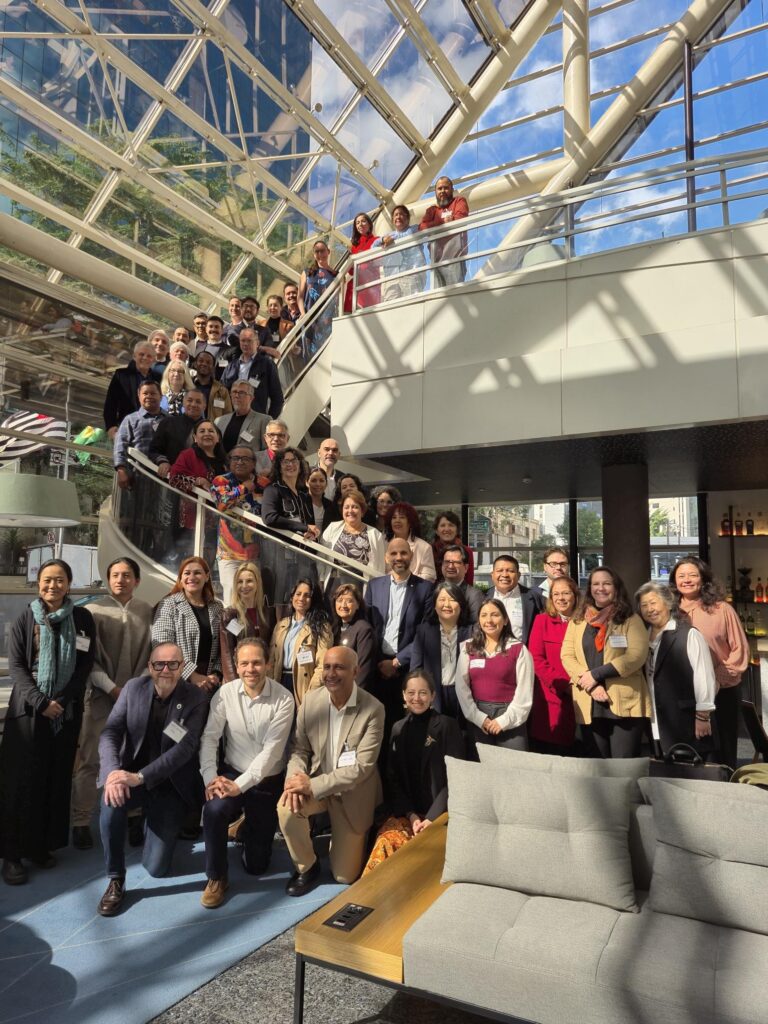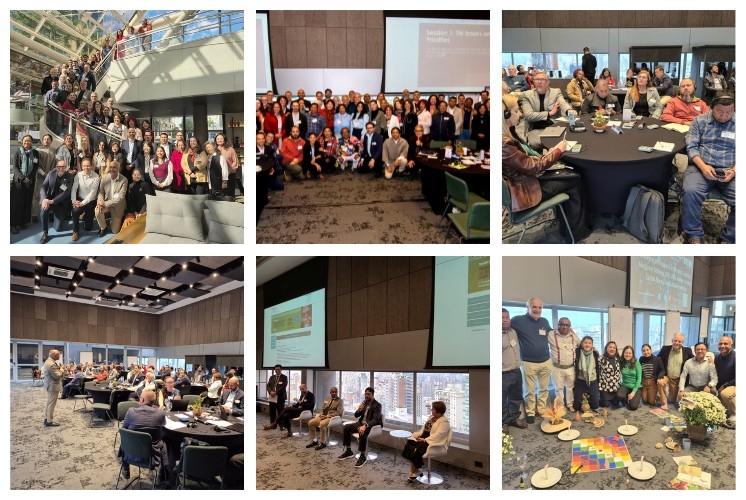The Pan American Health Organization (PAHO), through its Departments of Health Systems and Services (HSS) and Social and Environmental Determinants for Health Equity (DHE), and its Latin American and Caribbean Center on Health Sciences Information (BIREME), together with the World Health Organization (WHO), through its Global Traditional Medicine Centre (GTMC), held in Brazil, on June 11 and 12, the Regional Consultation for Research Prioritization in Traditional, Complementary, and Integrative Medicines (TCIM). With approximately 50 participants, the event brought together representatives from ministries of health, international experts, researchers, indigenous leaders, and organizations from countries across the Americas, establishing a forum for discussion on research priorities in the field of TCIM.
This consultation is part of a series of global exercises and was structured around expert presentations and a series of guided discussions on five key topics to set research priorities in TCIM. The methodology was coordinated by facilitators from the University of Technology Sydney (UTS), who led the group activities. Participants discussed major challenges, infrastructure conditions, evidence-based decision-making, identification of gaps, and ways to measure the success of future research agendas. The program also included the presentation of the WHO Global Traditional Medicine Library, developed by BIREME in collaboration with the WHO Global Traditional Medicine Centre (WHO GTMC), as well as cultural integration activities among the teams and participants.
The opening ceremony was attended by Gustavo Rosell de Almeida, Advisor in Health Systems and Services at PAHO/WHO; Geetha Krishnan Pillai, Head of the Research and Evidence Unit of the WHO GTMC; João Paulo Souza, Director of BIREME/PAHO/WHO; Daniel Amado, Technical Advisor and Project Manager for Integrative and Complementary Practices (PICS) at Brazil’s Ministry of Health; and Ileana Fleitas, Advisor on Medicines, Technologies, and Health Research, representing Cristian M. Fuhrimann, PAHO Representative in Brazil.
Rosell de Almeida highlighted the importance of having representatives from countries across the Region to facilitate the exchange of experiences and move toward consensus on TCIM research priorities. João Paulo Souza noted, “This is a key event taking place in São Paulo this week. Here, we are working with representatives from several countries, including indigenous peoples from our region, Brazil, and other countries in the Americas, to address research priorities in the field of traditional, complementary, and integrative medicines. This is essential, as we seek to expand access and improve the integration of traditional, complementary, and integrative practices with national health systems. This is achieved through the generation of new knowledge, which we refer to as research.”
Likewise, Geetha Krishnan Pillai from the WHO GTMC reiterated the international commitment to the topic: “We are working to create robust evidence and inclusive platforms that respect the intrinsic value and diversity of traditional medicines, supporting their integration with health systems. For millions of people, traditional medicine is the first choice of care, especially where access is limited. Strengthening the evidence base and valuing local knowledge increases people’s autonomy and makes healthcare more accessible, culturally relevant, and sustainable.”
Over the two days, participants discussed research priorities, the preservation and transmission of traditional knowledge, regulatory aspects of infrastructure and funding for TCIM research, the development of appropriate methodologies, and capacity-building among indigenous communities, local researchers, and healthcare providers. In this context, Kim Sungchol, Head of the TCIM Unit at WHO, gave a presentation focused on the new Global Strategy for Traditional Medicine (2025–2034), stating: “One of the main challenges in traditional medicine research is the protection and documentation of traditional knowledge, especially indigenous knowledge, ensuring the respect of community rights and preventing misappropriation.”
Ileana Fleitas, in turn, emphasized the importance of the event for the Region: “For PAHO, this global consultation on traditional medicine research, held in Brazil, is of enormous significance. It is fundamental to ensure that this ancestral knowledge is properly recognized within health systems, acknowledging it as a right of peoples and strengthening the regulation and integration of these practices. The leadership of Brazil and the contribution of BIREME, especially in creating the Global Traditional Medicine Library, demonstrate how the region can drive advances in valuing traditional knowledge on a global scale.”
The event supporting documents are available in Spanish, English, and Portuguese, and can be found on the webpage Regional Consultation on Research Prioritization in Traditional, Complementary, and Integrative Medicines (TCIM), developed by BIREME/PAHO/WHO. The website includes resources such as the program, images, videos, and other materials as part of the information and knowledge management actions supporting the event.
Historical Context
 Prioritizing research on traditional medicine is part of WHO’s global effort to strengthen the role of these practices in health systems, in line with milestones such as the Declaration of Alma-Ata (1978) and the Declaration of Astana (2018), which recognize their value in the context of primary health care (PHC). Since the publication of the Global Strategies on Traditional Medicine (2002–2005 and 2014–2023), the Gujarat Declaration, and the recently approved 2025–2032 Global Strategy, WHO has promoted the integration of traditional knowledge with evidence production as a tool to move toward more equitable, resilient, and people-centered health systems.
Prioritizing research on traditional medicine is part of WHO’s global effort to strengthen the role of these practices in health systems, in line with milestones such as the Declaration of Alma-Ata (1978) and the Declaration of Astana (2018), which recognize their value in the context of primary health care (PHC). Since the publication of the Global Strategies on Traditional Medicine (2002–2005 and 2014–2023), the Gujarat Declaration, and the recently approved 2025–2032 Global Strategy, WHO has promoted the integration of traditional knowledge with evidence production as a tool to move toward more equitable, resilient, and people-centered health systems.
Although the evidence base for traditional and complementary medicine has expanded over recent decades, significant challenges remain, such as fragmented research and the lack of global guidelines for translating knowledge into safe and effective practices. The prioritization process carried out in the Americas and other regions aims precisely to overcome these barriers, promoting the collective development of research agendas aligned with cultural diversity and the needs of people and communities.
In this context, Rosell de Almeida emphasized the importance of intercultural dialogue: “Strengthening primary health care requires incorporating and articulating traditional medicine knowledge, promoting a more integrated approach centered on people rather than diseases. For this, it is essential to maintain dialogue and value the experiences of indigenous peoples, researchers, and managers, building better health conditions for all together.”
As next steps, WHO and PAHO have outlined actions that include establishing mechanisms to protect traditional knowledge, developing guidelines to integrate traditional medicine with biomedical systems, and forming regional working groups. In this context, PAHO will develop a regional strategic plan in dialogue with governments, experts, academics, and indigenous communities and peoples, with preliminary results to be presented at the Traditional Medicine Global Summit to be held in December in India.
